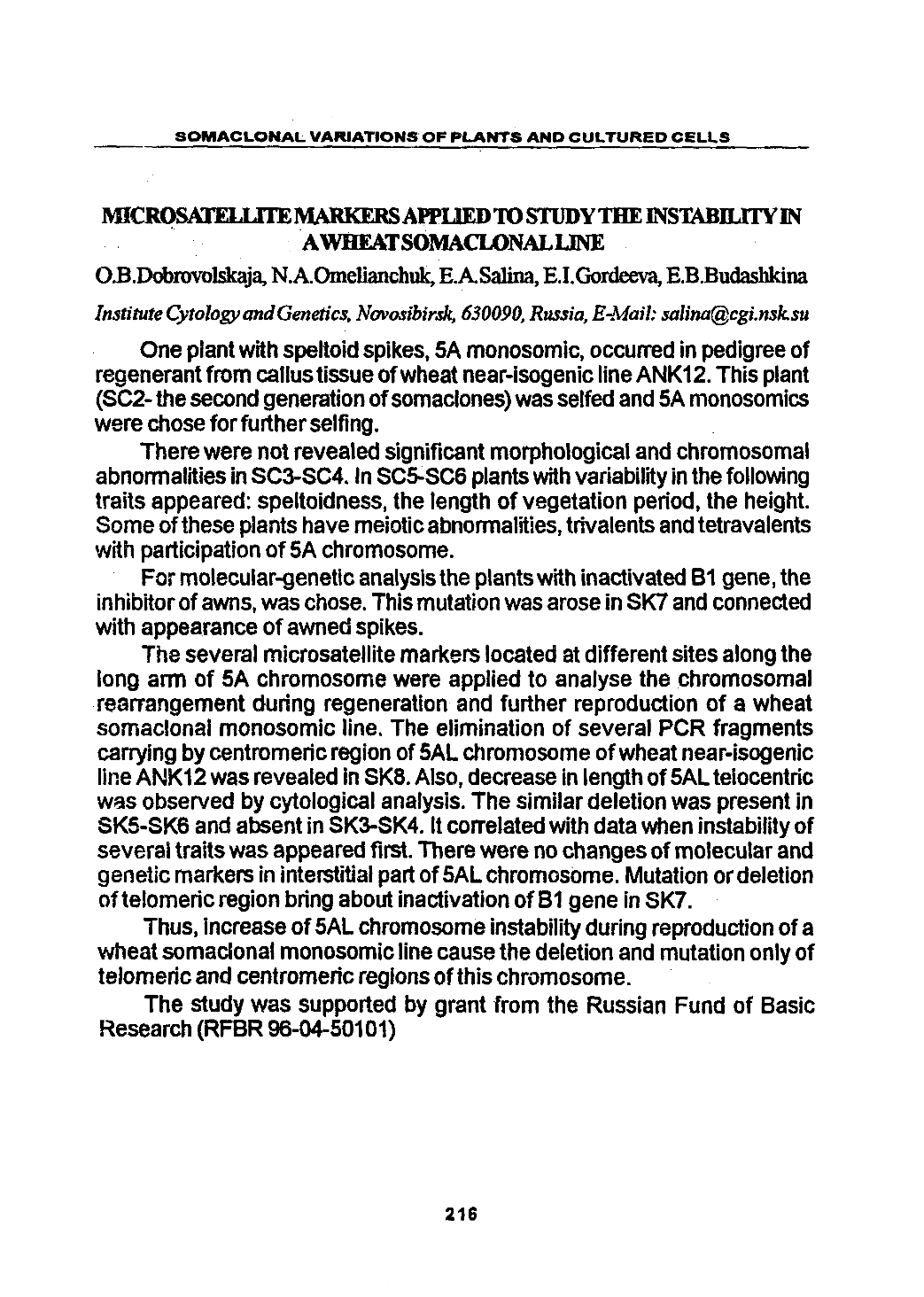

SOM A CLONA L VARIATIONS O F PLAN T S AND CU LTURED C EL LS
MICROSATELLITEMARKERSAPPLIEDTOSTUDYTHEINSTABILITYIN
AWHEATSOMACLONALLINE
O.B .Dobrovolskaja, N.A.Omelianchuk, K.A.Salina, E.I.Gordeeva, E.B.Budashkina
Institute Cytology andGenetics, Novosibirsk, 630090, Russia, E-Mail:
salina@cgi.nsk.suOne plant with speltoid spikes, 5A monosomic, occurred in pedigree of
regenerant from callus tissue of wheat near-isogenic line ANK12. This plant
(SC2- the second generation o f somaclones) was selfed and 5A monosomies
were chose fo r further selling.
There were not revealed significant morphological and chromosomal
abnormalities in SC3-SC4. In SC5-SC6 plants with variability in the following
traits appeared: speltoidness, the length o f vegetation period, the height.
Some of these plants have meiotic abnormalities, trivalents and tetravalents
with participation o f 5A chromosome.
For molecular-genetic analysis the plants with inactivated B1 gene, the
inhibitor of awns, was chose. This mutation was arose in SK7 and connected
with appearance o f awned spikes.
The several microsatellite markers located at different sites along the
long arm o f 5A chromosome were applied to analyse the chromosomal
rearrangement during regeneration and further reproduction o f a wheat
somaclonal monosomic line. The elimination of several PCR fragments
carrying by centromeric region of 5AL chromosome o f wheat near-isogenic
line ANK12 was revealed in SK8. Also, decrease in length o f 5AL telocentric
was observed by cytological analysis. The sim ilar deletion was present in
SK5-SK6 and absent in SK3-SK4. It correlated with data when instability of
several traits was appeared first. There were no changes of molecular and
genetic markers in interstitial part o f 5AL chromosome. Mutation or deletion
o f telomeric region bring about inactivation o f B1 gene in SK7.
Thus, increase o f 5AL chromosome instability during reproduction of a
wheat somaclonal monosomic line cause the deletion and mutation only of
telomeric and centromeric regions o f this chromosome.
The study was supported by grant from the Russian Fund of Basic
Research (RFBR 96-04-50101)
216
Научная электронная библиотека ЦНСХБ









